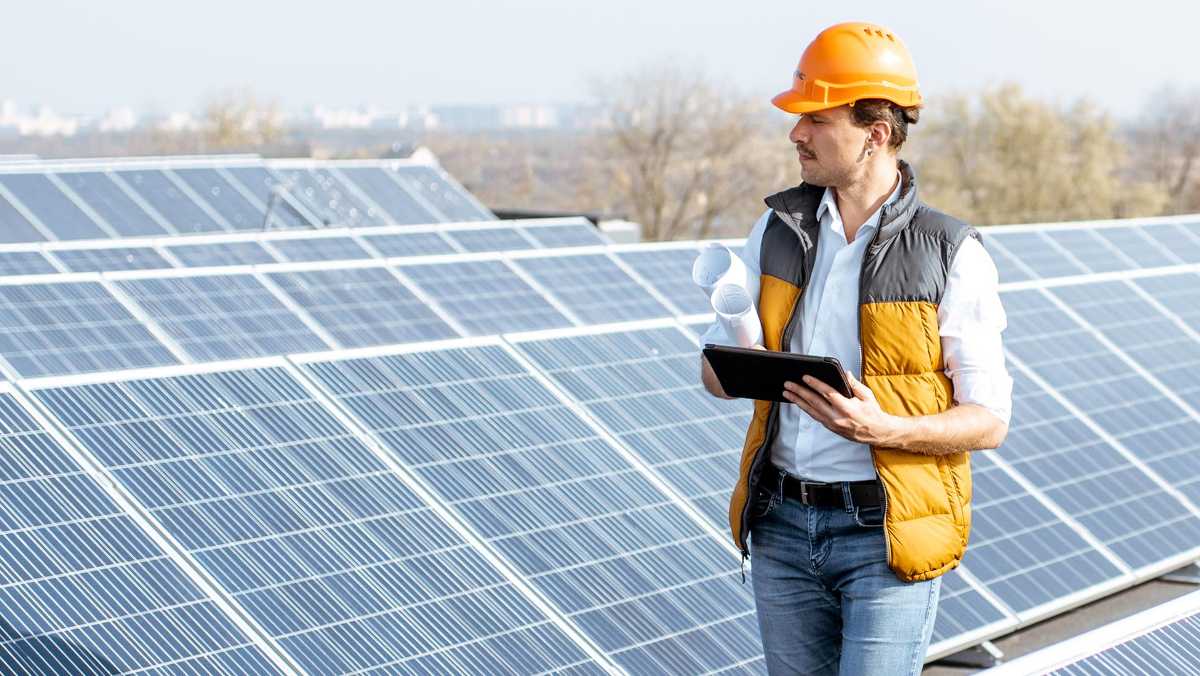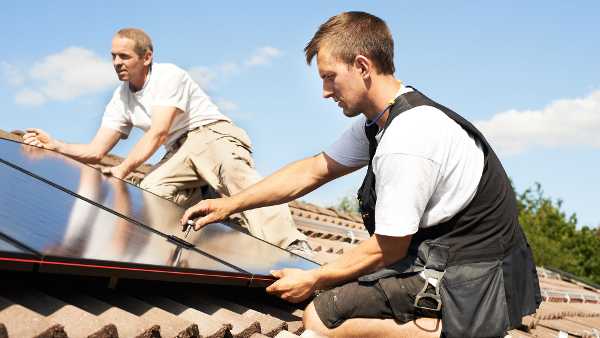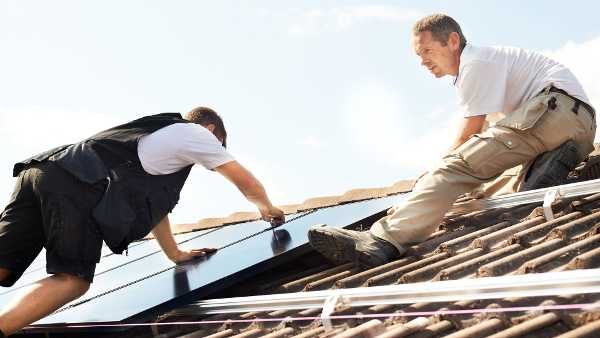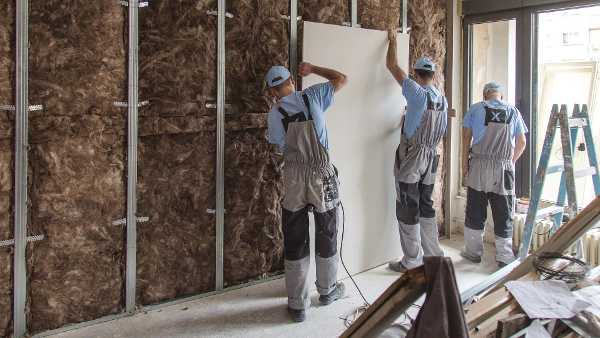Solar panels for your business

- The basis
- Edited 18 December 2024
- 5 min
- Managing and growing
- Sustainability
Are you considering investing in solar panels? Solar panels enable you to generate your own energy, making you less dependent on the volatile energy market. What are some of the other benefits of investing in solar panels for your business? And what are some of the issues to consider when trying to find out whether solar energy is right for your business? You will find out by reading this article.
Approximately 1.5 million Dutch (in Dutch) are equipped with solar panels, while a growing number of business owners are also installing rooftop solar panels. Statistics (in Dutch) reports that for the first time in 2020, more solar panels in the Netherlands were found at businesses than at private homes. This is not surprising, as after purchasing solar panels, you benefit from solar energy for an average of 25 years.
Benefits of solar panels for businesses
With energy prices soaring, investing in renewable energy pays off: a set of 10 rooftop solar panels will save you an average of approximately €1.000 euro (in Dutch) on your energy bills. The exact payback period depends, of course, on your personal situation. But it is a fact that solar panels are an investment that will save you money and energy over the long term. The Dutch Consumers’ Association (Consumentenbond) applies the following rule of (in Dutch): you will recoup your investment in around 6 years, after which you will be able to consume free energy for another approximately 19 years.
Lower energy label after solar panels
From 2023, all offices with floor space in excess of 100 square metres must have at least a C class energy label. By installing solar panels, you will reduce your building’s energy index. The energy index determines the energy label for your building: the lower the score, the better your energy label.
Solar panels: a sustainable choice
Solar panels are not only good for reducing your energy bills, but also for the climate. They run on sunlight, which is a renewable source. Even though the panels are manufactured in production facilities, they are still less harmful to the (in Dutch) than fossil sources.
Prepared for the future
By 2050, all forms of non-renewable energy will be banned in the Netherlands, and this is where solar panels, among other renewable sources, come in. A survey conducted by the Dutch Consumers’ Association (in Dutch) reveals that a growing number of consumers believe in the importance of corporate social responsibility (in Dutch). A green image will also help you to set yourself apart from your competitors.
Solar panels for your business
Are you considering investing in solar panels? There are a number of issues you need to take into account.
The right roof structure for solar panels
Since not all roof structures are strong enough to support solar panels, you should first check where you would like to install them. There are (in Dutch) to help you check whether your roof is suitable for this purpose. A consultant might be able to help you establish this. If you are unable to install solar panels on your own roof, you could explore the idea of purchasing solar panels with several other local businesses or local residents and installing them in a local field or on a local rooftop. You can apply for a grant under the Cooperative Energy Generation Grant Scheme (Subsidieregeling Coöperatieve (SCE).
Applying for a solar panel permit
In some cases, you will need an environment and planning (omgevingsvergunning) to install the solar panels. You should therefore check your local authority’s zoning plan before buying solar panels.
The cost of solar panels
Although solar panels have become increasingly (in Dutch) in recent years, purchasing them can be a substantial investment. A set of 10 panels will set you back an average of (in Dutch), including installation and VAT. The Dutch government ended VAT on solar panels for consumers from 1 January 2023. This 0% VAT rate also applies to entrepeneurs putting solar panels on the roof of their home.
The cost of solar panels varies depending on the situation and depends, among other things, on how many you need for your energy consumption. Of course, it also depends on the brand you choose and the amount of space you have available to install the panels. An installation company or energy consultant can calculate the estimated price for your situation.
Supplying energy back and net metering
If your solar panels generate more energy than you consume, you can, in many cases, feed the surplus back to the power grid. On your financial statements, your energy supplier will offset the solar power you feed back against the power you consume. This is referred to as the netting (salderingsregeling). Only small-scale users with a commercial power connection of a maximum of 3x80 Ampère are eligible for netting. You can check with your grid manager whether yours is a connection for small-scale users.
Please note: the netting scheme stops in 2027.
Insuring your building
Installing solar panels can potentially affect the insurance for your commercial building. Many insurers also set certain requirements for the installation and maintenance of your solar panels. The amount of your premiums could also be adjusted, as the solar panels will increase the value of your buildings. You should therefore always check your insurer’s terms.
Solar panels for your business: getting started
Your rooftop is suitable for installing solar panels, you have checked whether you need a permit, and you have the budget to invest in solar panels. So where do you go from here?
When buying solar panels, you should make sure they are certified: they should bear the Dutch Zonnekeur quality mark, as well as having a warranty and complying with the quality standards. Of course, you should also research what type of solar panels are most suitable for your roof and/or whether the installation company is reliable. You can find out, for example, by reading the reviews of the company. The following can help you choose your solar panels:
Share your experience and work together
David van Rosmalen, energy transition behavioural consultant at (in Dutch), a renewable energy consulting firm, advises businesses on using the energy grid in their city or town. “You should try talking to other local business owners. Have they installed solar panels yet? What provider did they choose, and are they satisfied with this choice? You can learn a lot from each other’s experiences, as well as pooling your resources and purchasing the panels together, which will entitle you to a discount.”
How many solar panels do I need?
“Solar panels are a smart investment, as they enable you to generate your own energy. In the most favourable case, you can supply a large section of your building with energy this way,” Van Rosmalen says. There are tools available, including the Solar Panel Check designed by (in Dutch), allowing you to make a general estimate of the number of solar panels on your rooftop and how much energy you can generate.
Insulation first, solar panels second
Van Rosmalen: “It is important to check whether your building is properly insulated. If you need less energy because your building is well insulated, you also need fewer solar panels.” For example, you can use the current waiting (in Dutch) for solar panels to insulate your building.
Want to increase the yield of your solar panels? Then combine them with a green roof. Solar panels on a green roof provide on average six per cent more energy than solar panels on a traditional black roof.
Subsidies and schemes for solar panels.
The government promotes sustainability through tax benefits, as well as subsidies and . There are various grants and subsidies available for the purchase of solar panels and generation of solar energy. As a business owner, you can also receive a VAT refund for the cost of the solar panels from the Dutch Tax . You can also – provided you satisfy the terms and – take advantage of the Energy-Saving Investment Credit (Energie-investeringsaftrek/EIA). This allows you to deduct 45.5% of your investment costs from your taxable profit.
Frequently asked questions about solar panels
If you receive permission from your landlord, you can also have solar panels installed as a tenant (lessee). In this case, it is sensible to make arrangements with your landlord for the insurance payable, as well as about the takeover of the solar panels in the event of a relocation.
Since it is proportionally more expensive to add more solar panels at a later stage, you should carefully check your current energy consumption, as well as estimate whether this is likely to change in the future. If you expect to need more energy down the line, for example because you want to use it to charge your electric vehicle or connect a heat pump to, you are better off choosing a number of solar panels that accommodate your future energy requirements.
Solar panels last an average of around 25 years.
The amount of solar energy generated in the Dutch climate is not enough to achieve full energy self-sufficiency. This is because, during the winter months, your solar panels do not generate enough energy, while your consumption is higher at that time. However, there are battery systems available that allow you to store your excess solar energy from sunny days for days when the weather is more overcast. However, such a battery system will still not make you fully (in Dutch) in your energy needs.


